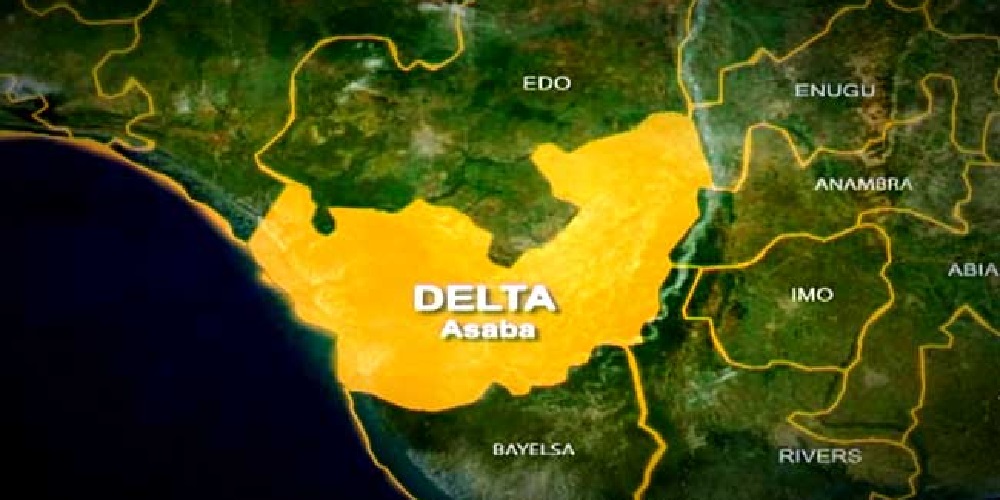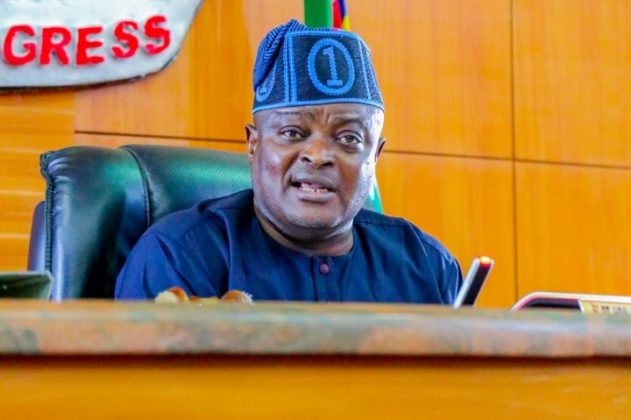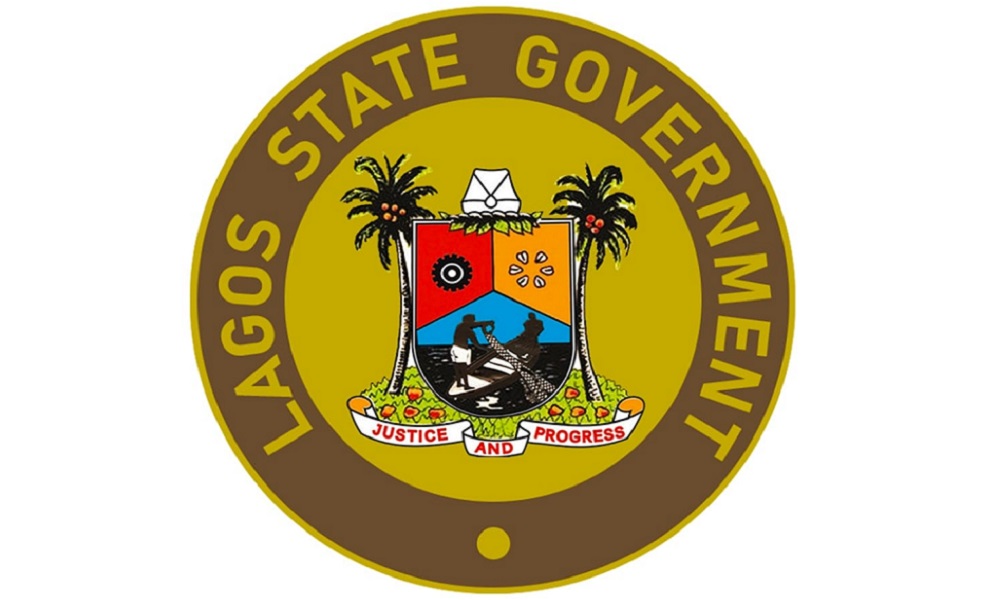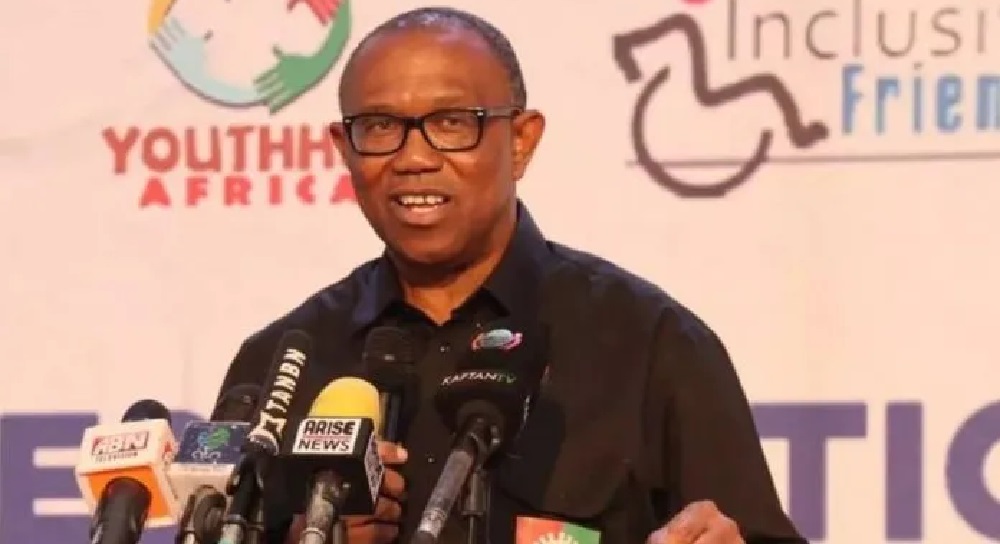News
Land palaver led to killing of soldiers in Okuama, Community leader

As the nation continues to mourn the gruesome murder of some military personnel in Delta State, a community leader in the state Olorogun Sleek Oshare says a land dispute led to the killing.
Seventeen persons were killed in the Okuama community of Delta State last week in what has continued to generate condemnation from Nigerian authorities.
While giving insights into the killing on Monday, Oshare said the military personnel were in the area as part of measures to settle a land dispute between Okuama and a neighbouring community.
“The quarrel was just a land dispute between one family and another family and land disputes happen over and over again,” he said on Channels Television’s Politics Today.
“One community felt that the other had a military connection and they were being pressured unnecessarily. The pressure is more on Okuoma and they don’t have anybody to speak for them.
“In the whole narrative, you don’t hear the name of the other community. Where is Okoloba? In the last two days, Okoloba has disappeared because they are also afraid.
“Sometimes, it is made to look as if it were an ethnic thing. It was just a dispute between individuals and Okoloba, which seems to have more connections.
“The families that were involved in the dispute are highly placed. Until we go into the real investigation, the truth will not come out.
“It is then the nation will come out to sympathize with the children, pregnant women, and old people who could have lost their lives in the random shootings.”
The community was razed following the killing but Oshare says there should be restraints.
“At this point, we should be careful whom we point fingers at, there might be some people who want to incite the authorities against the people of Okuama,” he said.
Since the incident, the Federal Government, Delta State, and military authorities have vowed to fish out perpetrators of the crime.
But another guest on the show Kabiru Adamu says the community should help in making that possible
”The community has a responsibility to support the Nigerian state in fishing out those responsible,” the security expert said.
News
Lagos Assembly insists Obasa’s removal legal as DSS grills lawmakers

The Department of State Services on Thursday grilled members of the Lagos State House of Assembly in connection to a petition reportedly written by the former Speaker of the House, Mudashiru Obasa.
According to reliable sources, more than half of the lawmakers were interrogated by the DSS for hours on Thursday before they were released in the evening.
The DSS investigation followed Obasa’s claims that his removal on January 13 over allegations of misconduct, abuse of office, and financial mismanagement, was illegal.
A source in the DSS, who is not authorised to speak to the press, told The PUNCH that the lawmakers were invited for questioning.
“They have been released, they were just invited for questioning based on the incidents that happened at the Assembly; they were allowed to go immediately after the questioning,” the officer said.
In a statement, the spokesperson for the Assembly, Ogundipe Olukayode, while reacting to their invitation, said the lawmakers visited the DSS to provide insights into the situation on the removal of the ex-Speaker.
He confirmed that all the members of the Assembly earlier detained had regained their freedom.
“At the DSS office, we reaffirmed our commitment to upholding constitutional governance following the removal of the former Speaker. The decision was made in accordance with the provisions of the 1999 Constitution of the Federal Republic of Nigeria and the Powers and Privileges Act, which empower the state Assembly to regulate its internal proceedings without external interference.
“The decision to remove the former Speaker was made through a democratic process, with the required majority as stipulated by law. Any attempt to challenge this lawful action undermines the authority granted to us by the Nigerian Constitution.”
“We commend the professionalism of the DSS office in their friendly invitation. We appreciate the Lagos DSS Command, especially the Director, for ensuring a smooth and respectful engagement. The process allowed us to give a clear recount of events in a comfortable and professional environment.”
Obasa, who had been a Speaker since 2015 and representing Agege constituency I, had insisted upon his return to Lagos from the United States that he was still the Speaker.
He urged the lawmakers to follow the “right process” in addressing his removal while maintaining that he had been unfairly targeted.
News
LASTMA impounds 173 vehicles for illegal parking

The Lagos State Traffic Management Authority says 125 commercial buses and 48 private vehicles were impounded for flagrant violations, including unauthorised parking and road obstructions.
The General Manager of LASTMA, Olalekan Bakare-Oki, who spearheaded the operations said, this in a statement on Thursday.
Oki said the enforcement initiative was designed to restore traffic discipline and facilitate the unhindered movement of vehicles.
He said, “This sweeping crackdown was executed across notorious gridlock-prone corridors such as Idumota, Ijaye Street, Martins, Ereko, Nnamdi Azikiwe by Tom Jones, Ebute-Ero, Oyingbo, Ijora, Adeniji Adele, and Iddo.
“This rigorous enforcement underscores LASTMA’s unwavering commitment to eradicating chronic traffic congestion and mitigating reckless road practices, particularly among commercial transport operators and private motorists who flout established regulations.”
He said a significant number of the offenders were caught engaging in perilous manoeuvres such as driving against traffic and executing hazardous reversals from Iddo to Idumota to pick up passengers.
He described this as a reckless action that had precipitated multiple road accidents and senseless loss of lives.
Oki said the initiative targeted unauthorised garages that had long served as catalysts for intractable gridlocks, inflicting undue hardship on commuters and residents alike.
“The state government remains resolute in its enforcement of traffic regulations and the restoration of order on our roads.
News
Obi tackles Akande, says #EndSARS narrative, attempt to rewrite history

The 2023 Labour Party presidential candidate, Peter Obi, has slammed the former governor of Osun State, Bisi Akande, over his allegation that the 2020 #EndSARS protest across Nigeria was orchestrated by the Obi’s supporters, otherwise known as Obidients, to derail the ambition of the current President, Bola Tinubu.
Obi and the Obidient Movement described Akande’s narrative as an attempt to rewrite history, adding that it was insensitive to the memory of #EndSARS victims, particularly those who lost their lives.
The nationwide #EndSARS protest, which lasted between October 7 and 20, began with the demand for the disbandment of the notorious police wing called Special Anti-Robbery Squad but soon snowballed into a demand for good governance.
There were confrontations between protesters and security agents, particularly in Lagos State, where soldiers allegedly opened fire on defenceless protesters at the Lekki Tollgate.
In a recent podcast anchored by a popular broadcaster, Edmund Obilo, Akande claimed that the #EndSARS protest was orchestrated by Obidients to stop Tinubu’s presidential ambition.
According to him, the movement was well funded with foreign donations.
“The Obidients were behind the #EndSARS. It was manufactured in America and brought in just to stop him (Tinubu). I said the Obidients, I didn’t say Obi.
“They came from America to do the #EndSARS and later became a movement to form a party. They couldn’t form a party. It was well planned and organised with a lot of money from America,” the octogenarian asserted.
But in an interview with our correspondent on Thursday, Obi’s media aide, Umar Ibrahim, tackled Akande, describing his claims as misleading and insensitive to the people who died during the protest.
He said, “The allegations are not only misleading but also divisive. It is unfortunate Akande would suggest that the Obidient Movement was behind the #EndSARS protests, and even more astonishing that he would imply it was orchestrated to prevent a particular individual from becoming President.
“Well, let me be clear: the movement is a grassroots phenomenon that emerged organically, driven by the passion and dedication of Nigerians who are committed to creating a better future for our country. It’s a movement that transcends partisan politics and is focused on promoting good governance, accountability, and inclusive development.
“The #EndSARS protests, on the other hand, were a spontaneous response to the widespread discontent and frustration among Nigerian youth regarding issues of police brutality, corruption, and economic inequality. It’s a testament to the resilience and determination of our young people, who are demanding a more just and equitable society.
“To conflate these two distinct phenomena is not only inaccurate but also unfair to the millions of Nigerians who are genuinely committed to creating positive change. We urge former governor Akande to refrain from making unsubstantiated claims that can only serve to further polarise our society.”
Similarly, the National Coordinator of the Obidient Movement Worldwide, Tanko Yunusa, described Akande’s narrative as an insult to the memory of all #EndSARS victims, particularly those who lost their lives.
He said, “The Obidient movement outright rejects the baseless and revisionist claim by former Governor Bisi Akande. His false narrative is not only an insult to the memory of the young Nigerians who lost their lives in the fight against police brutality but also a desperate attempt to rewrite history and shift blame for the government’s failures.
“#EndSARS was a decentralised, youth-led movement demanding an end to police brutality, extrajudicial killings, and systemic oppression in Nigeria. It was not about politics, nor was it about any single individual’s presidential ambition.
“Rather than engaging in revisionist propaganda, we urge Akande and his associates to focus on addressing the real issues facing Nigerians today — economic hardship, insecurity, unemployment, and bad governance. The people are suffering, and no amount of misinformation or historical distortion will change that reality.”
-

 Economy21 hours ago
Economy21 hours agoSEE Current Black Market Dollar (USD) To Naira (NGN) Exchange Rate
-

 News21 hours ago
News21 hours agoBREAKING! Trump’s order on stopping aids for HIV/AIDS affects Nigeria as National Lab for samples allegedly shuts down
-

 News21 hours ago
News21 hours agoDaring Sowore Says I’ll Still Reject That Stupid Bail Condition Even If Tinubu Appears As My Surety
-

 News21 hours ago
News21 hours agoDistribution of HIV drugs in poor countries stopped as Trump freezes foreign aid
-

 News21 hours ago
News21 hours agoEFCC nabs ex- NHIS Executive Secretary, Professor Usman Yusuf
-

 News19 hours ago
News19 hours agoYour Wishes And Gifts Touched My Heart Deeply”, Amekunlooye Extends Appreciations To Those Who Honour Him On His Birthday
-

 News16 hours ago
News16 hours agoBREAKING : Court Nullifies Gov Adeleke’s Executive Order on Owa of Igbajo, Declares Famodun as Authentic Monarch
-

 Politics21 hours ago
Politics21 hours agoHilda Dokubo Snubs Invitation to Join Obidient Movement Advisory Council








